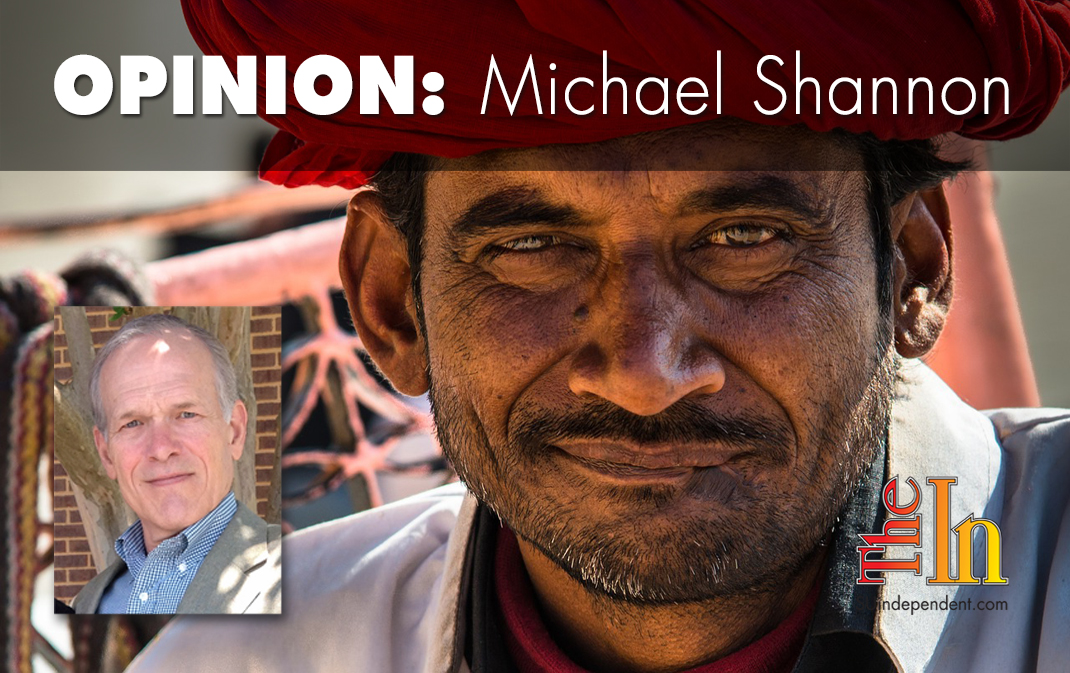
Congress to tech workers: Eat cake
For much of the summer, the House of Representatives obsessed over the Fairness for High-Skilled Immigrants Act (HR 1044), a bad bill that would eliminate the traditional 7 percent country caps imposed on employment-based visas, largely H-1Bs. By so doing, the bill would ensure that the overwhelming majority of those coveted employment-based visas would go to Indian nationals, nearly 100 percent according to U.S. Citizenship and Immigration Services.
With only 40 minutes of debate, in July, the House passed HR 1044, 365-65, meaning tech workers from other countries would be shut out. As for American workers, the House passage means those elected to represent the interests of Americans are fine letting American families, figuratively speaking, swing in the wind.
When the Fairness for High-Skilled Immigrants Act (S. 386) reached the Senate, champion Mike Lee (R-Utah) attempted but failed – barely – to secure unanimous consent and expedited proceedings. Lee promised to try, try again. Much of what’s gone on so far regarding the Fairness for High-Skilled Immigrants Act is caught up in arcane congressional procedures. But the H-1B visa back story is, as such tales often are, more compelling.
To understand the complete, historical picture, recognize that the H-1B visa has, since Congress created it as part of the Immigration Act of 1990, displaced U.S. tech workers on a massive scale, and it essentially slams the door shut on American job applicants.
Even though U.S. colleges graduate more than enough skilled tech workers each year to fill existing vacancies, fewer than 30 percent of Silicon Valley tech workers are U.S. citizens. The abundance of aspiring American workers is likely to continue into the foreseeable future. A January feature story in The New York Times titled “The Hard Part of Computer Science? Getting into Class” noted that campuses across the country “are rushing in record numbers to study computer science.” Seats are at such a premium that qualified students, including minorities and females, have been shut out. Let American kids swing in the wind, too.
Silicon Valley’s exaggerated worker shortage claim has been well-known to the Capitol Hill powerful for more than 20 years. That fact makes Congressional inaction on tightening the H-1B programs, and not calling out the unscrupulous employers who callously pass over Americans to hire cheaper, less talented foreign nationals, all the more disappointing.
In 1998, the H-1B visa cap was raised from 65,000 to 115,000, despite the Clinton administration’s strong suspicion that, as White House memos indicated, the tech industry was bluffing about its “shortage of really highly skilled and desirable workers.” At the same time that tech industry captains were whining about a nonexistent labor shortage, it was laying off workers.
Despite numerous congressional testimonies and countless nonpartisan studies that support the facts that the H-1B displaces U.S. tech workers and provides a bottom-line boost to employers, the visa’s issuance continued for years unchecked. The pro-immigration Migration Policy Institute found that in 2016 the USCIS approved 114,503 H-1B visas for initial U.S. employment, and in the same year, the agency authorized 230,759. The total U.S. tech jobs that those visas displaced or that shut out recent college graduates: a staggering 345,262.
In his 1992 testimony to the House Immigration Subcommittee, Labor Department Deputy Wage and Hour Administrator John R. Fraser summed up the H-1B problem, saying that “increased immigration should be the last – not the first – public policy response to skills shortages.”
The failure of Congress to protect Americans against a nonstop H-1B flow and the unwillingness to reject Silicon Valley’s hollow pleas for more overseas labor is staggering in its totality. U.S. jobs should go only to citizens or lawful permanent residents, and not to foreign nationals who have no ties, family or otherwise, to America.
The viewpoints expressed above are those of the author and do not necessarily reflect those of The Independent.
How to submit an article, guest opinion piece, or letter to the editor to The Independent
Do you have something to say? Want your voice to be heard by thousands of readers? Send The Independent your letter to the editor or guest opinion piece. All submissions will be considered for publication by our editorial staff. If your letter or editorial is accepted, it will run on suindependent.com, and we’ll promote it through all of our social media channels. We may even decide to include it in our monthly print edition. Just follow our simple submission guidelines and make your voice heard:
—Submissions should be between 300 and 1,500 words.
—Submissions must be sent to editor@infowest.com as a .doc, .docx, .txt, or .rtf file.
—The subject line of the email containing your submission should read “Letter to the editor.”
—Attach your name to both the email and the document file (we don’t run anonymous letters).
—If you have a photo or image you’d like us to use and it’s in .jpg format, at least 1200 X 754 pixels large, and your intellectual property (you own the copyright), feel free to attach it as well, though we reserve the right to choose a different image.
—If you are on Twitter and would like a shout-out when your piece or letter is published, include that in your correspondence and we’ll give you a mention at the time of publication.



